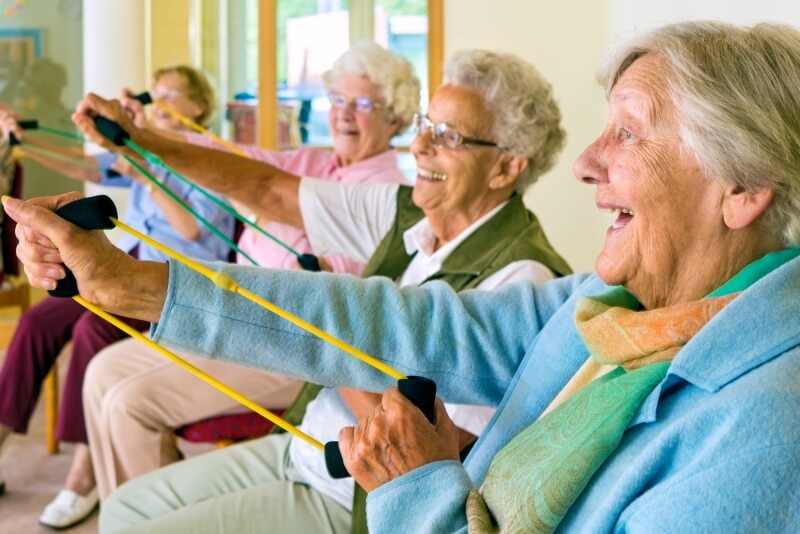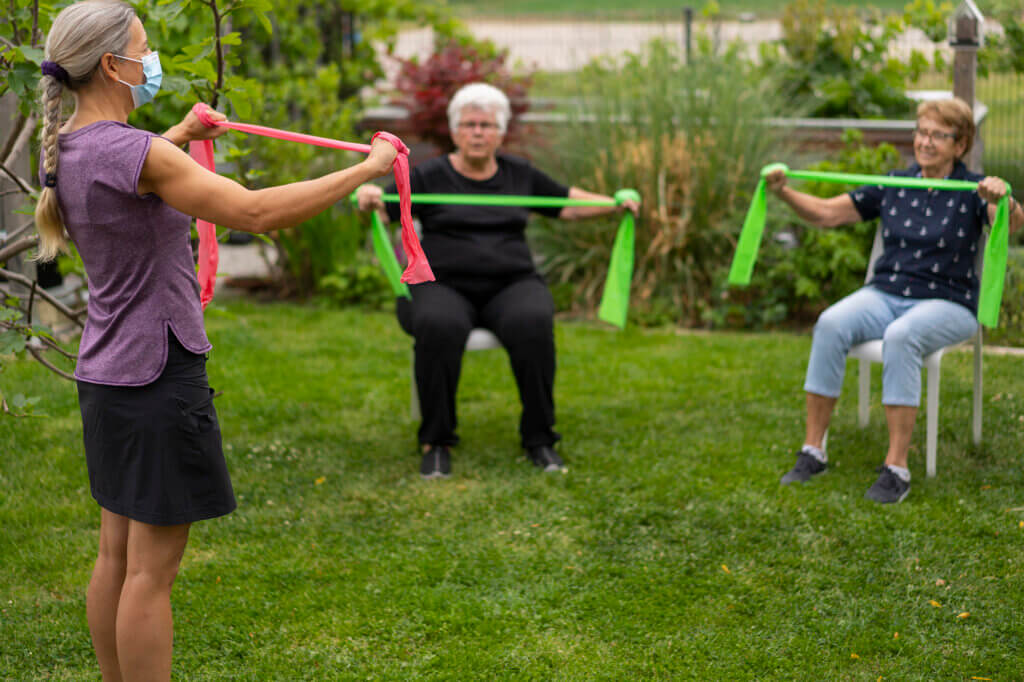
In 2010 there was an estimated 36 million people suffering from dementia worldwide, and this is anticipated to increase to 115 million by 2050. The associated difficulties for individuals experiencing cognitive decline include reduced mobility, increased muscle weakness, impaired balance and increased risk of falls, withdrawal from usual activities, increased stress and mood disturbance, and increased risk of cardiovascular and metabolic health complications that are associated with inactivity.
Counsel Assisting the Royal Commission into Aged Care Quality and Safety found that aged care residents have insufficient access to allied health professionals. Increasingly, Physiotherapy is being recognised as an important part of management for people with mild cognitive impairment or dementia, with a 2020 systematic review concluding that physical exercise can reduce global cognitive decline and lessen behavioural problems.

The evidence is mounting! Exercise can:
- Have a role in falls prevention in people with dementia and Parkinson’s Disease;
- Increase brain capacity as it boosts blood flow to the brain, encourages neuroplasticity, and increases testosterone levels which can help to protect brain cells;
- Build or maintain muscle mass, strength, balance and coordination of movement;
- Prevent mobility problems and health complications associated with inactivity;
- Reduce stress and depression commonly experienced by people with dementia; and
- Increase social participation and happiness.

Increasingly, family members are becoming more aware of these benefits for their loved ones in aged care facilities and are seeking private Physiotherapy assistance. Aged Care Package providers are also increasing their referrals for Physiotherapy and Exercise Physiology for clients living in their own homes, with many clients having regular home visits for mobility and exercise program development. Physiotherapy support is provided to carers for safety in mobility, falls prevention strategies and use of appropriate gait aids, and where possible, how to encourage their loved one to complete exercise programs and regular walks independently and with family assistance.
Physiotherapists often observe increased interaction from the client with improved eye contact, conversation, smiling and laughing. This is also of great benefit to family members and friends who may be struggling with the changes they see in their loved ones’ cognitive and physical function. Clinician-supervised programs give the client dedicated 1:1 time which may otherwise be difficult to capture in the home or in an aged care facility. Physiotherapy programs are tailored to the individual, and in addition to specific exercises can include challenges in sequencing of movements, involve the client in counting reps or singing songs, utilise repetition to strengthen performance, and incorporate novel movements and activities to encourage interest and attention. In some cases, the Physiotherapist may provide the opportunity for the client to move out of their usual environment to experience outdoor mobility with the benefits of fresh air and sunshine.

The well-known benefits of exercise and activity continue into older age, with more and more solid evidence emerging to support the physical, cognitive and emotional benefits for people with cognitive impairment or dementia. Consider if you or a loved one could benefit from a tailored exercise program, and ask your Physiotherapist, GP or Aged Care Provider for more information on how to get started or supplement your current routines.

